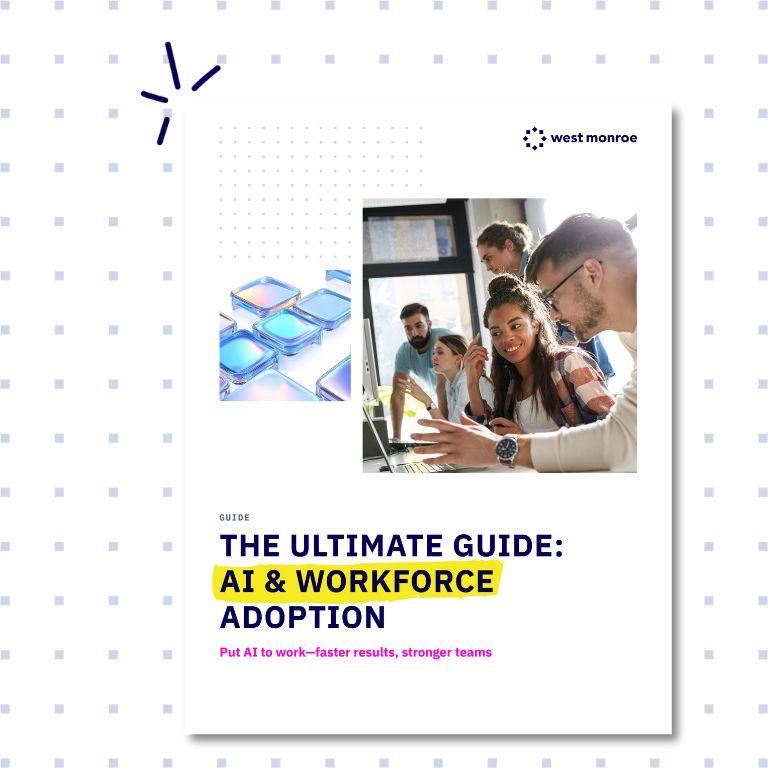Quick Read
Powering the Future of Insurance with People and AI
AI may change insurance, but human capital management determines its success
May 15, 2025

As customer expectations rise and data becomes central to everything from underwriting to claims, modernization is no longer a nice-to-have for insurers—it’s a business necessity. But investing in the latest tools won’t deliver results on its own. The real value of technology comes from how people use it.
Too often, insurers pursue transformation initiatives without a parallel investment in workforce capabilities. The result: powerful platforms that fall short of their potential. Success depends on aligning human capital management (HCM) with modernization efforts—developing the talent, skills, and adaptability needed to turn strategy into sustained impact.
For insurance companies, this means looking beyond “AI readiness” toward being truly future-ready. That includes cultivating the critical thinking, creative problem solving, and data fluency needed to meet challenges like AI—and whatever comes next. The industry is shifting from traditional risk management to a sophisticated data science ecosystem, and that transformation demands new skills and talent strategies to match.

The Ultimate Guide to AI & Workforce Adoption
AI is reshaping how work gets done—and organizations need a plan to adapt their workforce. Our guide breaks down how to align talent, tech, and strategy to make AI work. For insurers, it’s a playbook for staying competitive in a fast-evolving market.
The Changing Face of Insurance: AI and Workforce Transformation
AI is rapidly reshaping the insurance landscape, altering the skills required to succeed. The future-ready workforce is no longer defined by traditional roles but by adaptability, technological fluency, and complex problem-solving capabilities. Tomorrow’s workforce will spend more time on complex social and analytical problems. What skills do they need that are undervalued or under-developed today?
The real shift isn’t just in how work gets done—it’s in what work matters most. Task-focused skills remain necessary, but they’re evolving quickly. As tech takes on more routine tasks, human strengths like critical thinking, creative problem-solving, data analysis, and discernment become essential. Insurance professionals will need to interpret AI and machine learning outputs, collaborate across functions, adapt to new tools, and apply advanced analytics to complex challenges. The insurers that thrive will build blended teams where human judgment and experience work alongside artificial intelligence—not in competition with it, but in partnership.
Addressing the Generational Workforce Challenge
The insurance industry faces a critical demographic challenge. An aging workforce of experienced leaders coexists with a new generation of digital-native talent. This presents both a significant risk and an unprecedented opportunity for knowledge transfer and organizational reinvention.
Successful human capital strategies start by recognizing the value of both institutional knowledge and emerging talent. That means capturing expertise from seasoned professionals before it’s lost and creating opportunities for mentorship and knowledge-sharing across generations.
At the same time, organizations must offer compelling career paths that attract tech-savvy talent—and build a culture that encourages continuous learning and adaptability. Just as important is ensuring experienced team members remain vital contributors by helping them evolve alongside the technology transforming the industry.
From Data Processing to Data Science: A Skill Revolution
The insurance industry has evolved from a traditional risk management model into a dynamic, data-driven ecosystem. This shift demands a fundamental rethinking of talent acquisition, development, and retention strategies.
Competing in today’s market means building teams equipped not just to manage risk, but to analyze it, model it, and design customer experiences around it. That requires fluency in advanced statistical analysis, the ability to interpret machine learning models, a strong grasp of cybersecurity risks, and the capability to navigate complex risk modeling environments. Just as critical is the skill to translate all of that into intuitive, human-centered experiences for policyholders.
Organizations must create compelling value propositions for young professionals, positioning themselves as innovative technology companies that happen to operate in the insurance space. At the same time, they must help seasoned professionals adopt emerging skills to capitalize on their deep industry experience to create a multiplier effect with data and technology.
Strategic Human Capital Management: A Comprehensive Approach
Successful technology modernization doesn’t happen in a silo—it requires a holistic approach to human capital management that evolves alongside the business. That starts with continuously assessing and developing the skills your workforce needs, not just today but as the industry shifts. Learning must happen in the flow of work, with real-time performance support that helps people apply new tools and technologies as they go. Flexible, personalized development programs create space for growth, while modern talent management systems use technology to match people with the right opportunities at the right time.
Just as important is fostering a culture of innovation and experimentation—one where employees are encouraged to try, test, and adapt. And none of it works without a compelling value proposition: competitive compensation and clear, exciting growth paths that keep top talent engaged.
The ROI Equation: Technology + Human Potential
The true measure of technological investment is not in the tools themselves, but in the organization's ability to leverage them effectively. Human capital management bridges the gap between technological potential and realized value.
Insurers must view their workforce not as a cost center, but as a strategic asset capable of driving innovation, efficiency, and competitive advantage.
Author: Peter McMurtrie



